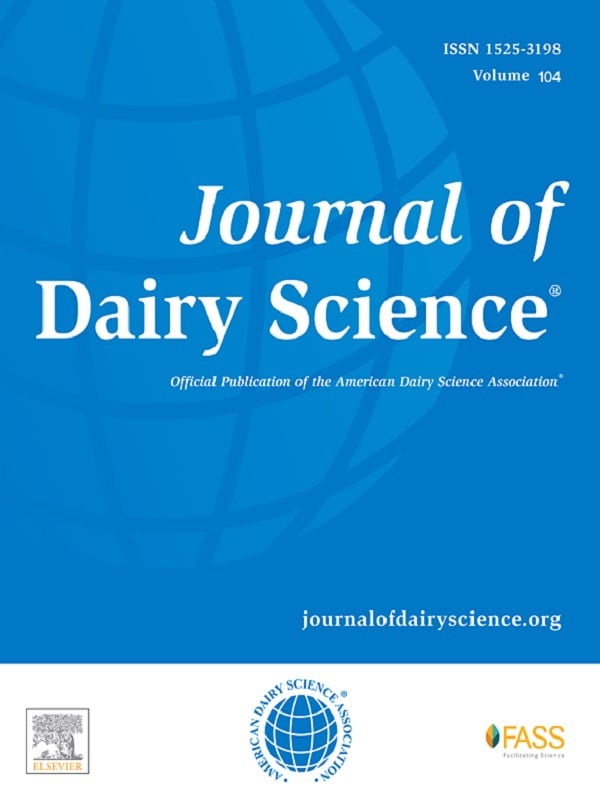Effect of energy source in calf milk replacer on performance, digestibility, and gut permeability in rearing calves
J. Dairy Sci. 102:3994–4001
- Ruminants
- Open Access

Abstract
Current calf milk replacer (CMR) compositions significantly differ from whole milk in their levels of energy, protein, and minerals. Energy source is one of the major differences, as CMR contains high levels of lactose, whereas whole milk contains higher levels of fat. The aim of this study was to determine the effect of partially exchanging lactose for fat on performance, digestibility, and gut permeability in calves fed twice daily on a high feeding plane. Lactose and fat were exchanged in the CMR formulation on a weight–weight basis. The CMR were isonitrogenous but not isoenergetic. A total of 60 male Holstein-Friesian calves were assigned to 1 of 30 blocks based on serum IgG, body weight, and date of collection after birth. Within each block, calves were randomly assigned to 1 of 2 treatments: high fat and high lactose. The CMR was provided twice daily until 49 d of age, followed by a gradual weaning period of 14 d. Starter, straw, and water were available ad libitum throughout the complete study. Exchanging lactose for fat did not affect growth; intakes of starter, straw, water, crude protein, or total energy; or apparent total-tract digestibility of nutrients. Gastrointestinal permeability was assessed by measuring the recovery of lactulose and Cr in 24-h urine and the Cr concentration and lactulose:d-mannitol ratio in serum following an oral pulse dose. Urinary recoveries of Cr and lactulose were generally low in both treatments but were higher in calves fed the high-fat CMR. Accordingly, the serum lactulose:d-mannitol ratio and serum Cr concentrations were higher in calves fed the high-fat CMR. In wk 1 and during the weaning transition, calves fed the high-fat CMR had significantly fewer abnormal fecal scores. In conclusion, exchanging lactose for fat in the CMR did not affect growth performance, total feed intake, or nutrient digestibility. The high-fat CMR was associated with an increase in permeability markers but positively influenced fecal scores in calves.